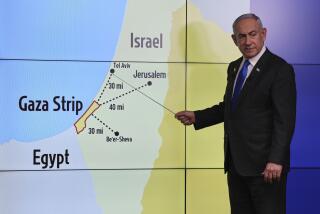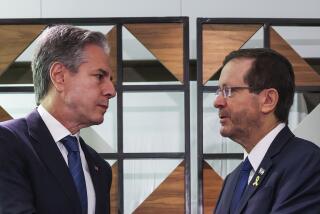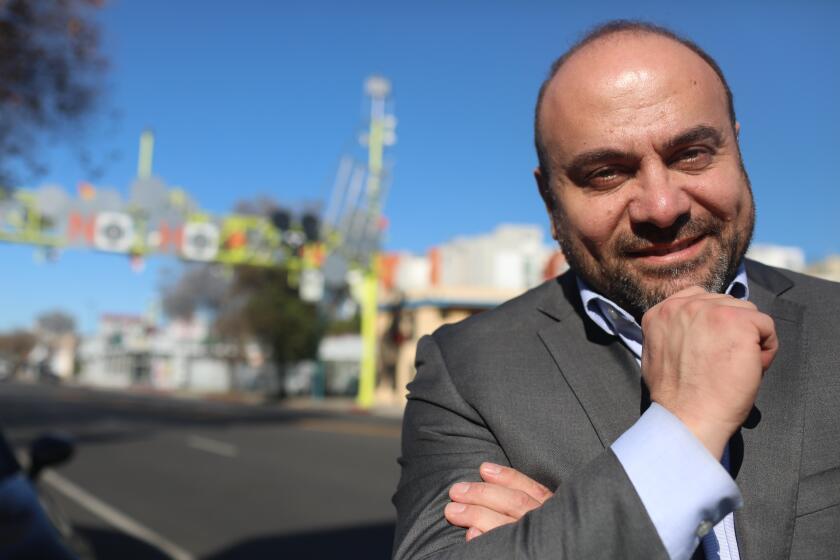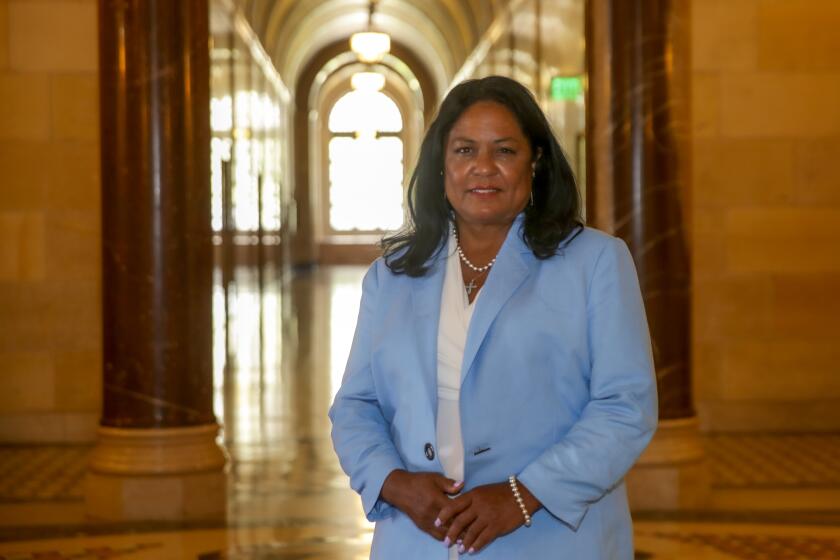Editorial: New Palestinian-Israeli violence shows the urgent need for a two-state solution
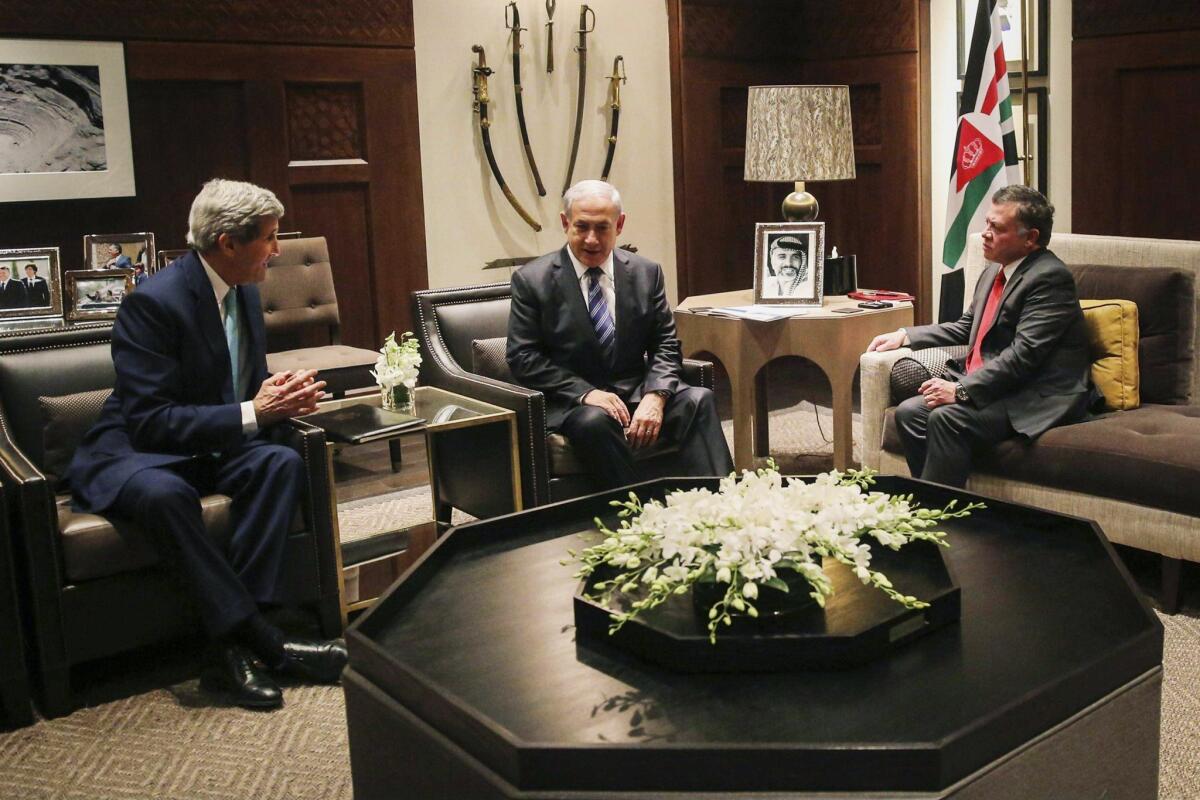
This 2014 photo shows U.S. Secretary of State John Kerry, Israeli Prime Minister Benjamin Netanyahu and Jordanian King Abdullah II meeting in Amman, Jordan, also to discuss ways to restore unrest in Jerusalem.
For weeks, Israelis have been terrorized by frighteningly random assaults — often by young, knife-wielding Palestinians — that were spurred at least partly by social media and suspicions that Israel is plotting to interfere with Muslim privileges at a holy site in Jerusalem also revered by Jews. The attacks, and the shooting of the assailants by Israeli security forces, have raised fears of another deadly intifada in the Holy Land and led Secretary of State John F. Kerry to attempt some diplomacy with Israeli Prime Minister Benjamin Netanyahu, Palestinian Authority President Mahmoud Abbas and Jordan’s King Abdullah.
Kerry should use those conversations to press for a resolution of the current crisis before the Israeli-Palestinian conflict becomes any more inflamed. On Monday, the secretary made his first move, suggesting that there needed to be “clarity” about the fact that there has been no change in the arrangements at the site known to Jews as the Temple Mount and to Muslims as the Noble Sanctuary. The site houses two Islamic landmarks — the Dome of the Rock and the Al Aqsa mosque. Nearby is the Western Wall, a remnant of the magnificent Jewish temple destroyed by the Romans in 70 AD.
Under the so-called status quo long honored by Israel, only Muslims are permitted to pray on the plateau, while Jews offer prayers at the Western Wall. Netanyahu insists that his government has no intention of altering the status quo, but rumors of such a plan have been inspired by an increase in the number of Jews visiting the site (some of whom have violated the ban on prayer) and by the agitation of some Israeli politicians for scrapping the status quo. Prominent Palestinians, including Abbas, have fueled the suspicions with inflammatory comments.
Kerry indicated that he would discuss with Arab and Israeli leaders steps that would demonstrate that they are “making a serious effort” to try to resolve the current crisis. One possible sign of that commitment would be a formal reaffirmation of the status quo by Netanyahu, Abbas and King Abdullah, whose country appoints the officials who administer the Noble Sanctuary.
We hope that Kerry also will press Israel, the Palestinians and other parties to revive efforts to resolve the larger Israeli-Palestinian conflict — an effort in which the secretary of State invested much of his time and prestige in 2013 and 2014, only to see negotiations collapse. Although the recent attacks on Israelis may largely be inspired by religious fervor, they can’t be separated from the alienation many Palestinians feel about Israeli control of East Jerusalem and much of the West Bank, and the failure of decades of diplomacy to produce a solution. As Kerry well knows, Israel and the Palestinians share in the responsibility for that failure, but both also stand to benefit if negotiations resume on political as well as religious issues. The latest bloodshed should convince them that it’s in their mutual interest to reach an agreement.
Follow the Opinion section on Twitter @latimesopinion and Facebook
More to Read
A cure for the common opinion
Get thought-provoking perspectives with our weekly newsletter.
You may occasionally receive promotional content from the Los Angeles Times.
